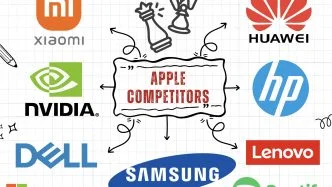Germany has long been known for quality craftsmanship, precision engineering, and automotive excellence. From the luxurious comfort of a Mercedes-Benz to the sleek lines of a Porsche, German cars have left an indelible mark on roads across the world.
In fact, one in every five cars worldwide comes from a German brand. Germany has 44 automobile assembly and engine production plants, which produce more than a third of all cars made in Europe. [1]
The automotive industry is highly innovative and plays a crucial role in the German economy. As per reports, German automobile companies spend more than $35 billion annually on research and development. [2]
In this article, we will feature top-performing German car brands, and explore their production capacities, revenues, and their enduring legacy on a global scale.
These car companies are at the forefront of shaping the future of mobility, pioneering safety innovations, and pushing the boundaries of autonomous driving technology.
Did you know?
In 2024, the German automobile industry generated nearly $627 billion in total sales, up from $602 billion the previous year. About $435 billion of total revenue came from exports. [3]
However, despite this growth, the number of employees in German automobile manufacturing has been declining since 2018. In 2024, around 773,000 people worked in this industry, down from 857,000 people in 2016. [4]
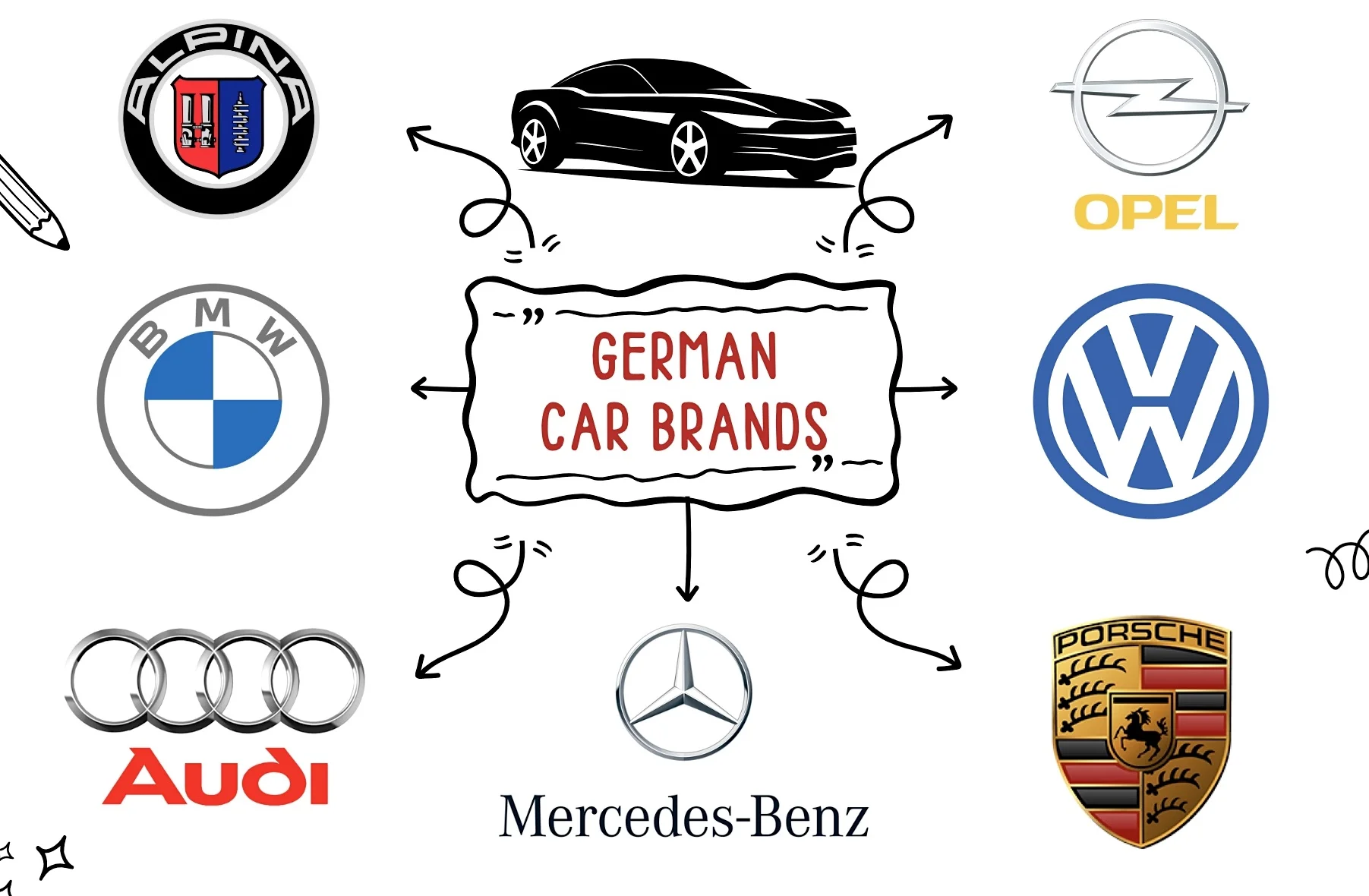
Table of Contents
8. Mercedes-AMG
Founded in 1967Parent: Mercedes-Benz
Annual Revenue: ~$1 billion
Employees: 2,700+
Mercedes-AMG is a higher-performance subsidiary of Mercedes-Benz. The AMG stands for Aufrecht, Melcher, Großaspach, which are the names of its founders.
It produces a broad range of performance vehicles, including SUVs, sedans, coupes, convertibles, and sports cars. These vehicles feature powerful and more refined engines, enhanced handling, and distinctive styling cues compared to their standard Mercedes-Benz counterparts.
Plus, most of these vehicles incorporate advanced features like AMG Performance 4MATIC all-wheel drive, AMG Ride Control adaptive suspension, and intelligent driver assistance systems adapted for high-performance driving.
For example, the second-generation AMG GT (launched late 2023) now includes new variants: the GT 43 with a 2.0L four-cylinder and rear-wheel drive, the GT 63 Pro with an upgraded V8, and the GT 63 S E Performance, a plug-in hybrid V8 delivering 600 kW and capable of 0-60 mph in about 2.8 seconds.
The company’s annual revenue is projected to remain roughly the same by 2029, with an estimated growth of about 0.9%. Unit sales are expected to reach around 8,100 vehicles in 2029. [5]
7. Maybach
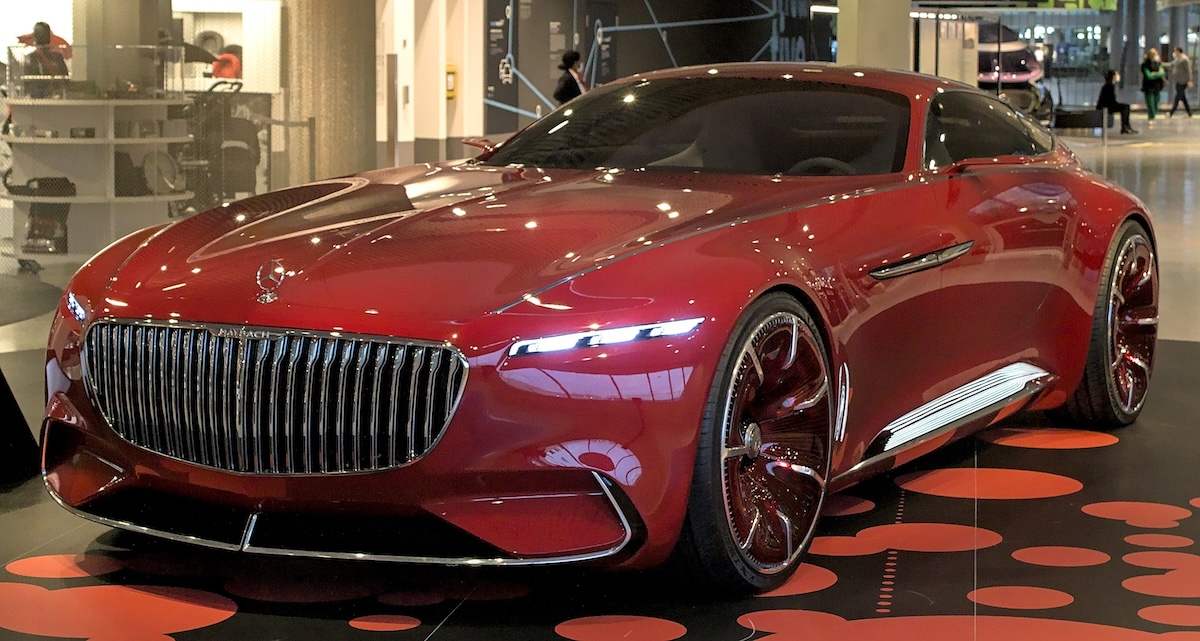 Mercedes-Maybach 6 | Concept car
Mercedes-Maybach 6 | Concept car
Parent: Mercedes-Benz
Annual Revenue: ~$2 billion
Annual Sales: 21,800 units (2024)
Initially, Maybach developed engines for aircraft and zeppelins and later transitioned to luxury vehicles. Today, it is closely integrated with Mercedes-Benz, sharing platforms and components with S-Class models.
The super luxury edition of the Mercedes-Benz S-Class, GLS-Class, and EQS SUV are produced under the Mercedes-Maybach name. These models are produced in limited numbers, with a focus on exclusivity and customization.
The modern Maybach models, such as the S680 and S580, target the ultra-luxury segment, competing with brands like Bentley and Rolls-Royce.
2022 was a phenomenal year for Mercedes-Maybach. The company delivered 21,600 units to customers, up 37% from the previous year. This growth was supported by strong performance in China, Japan, and Korea, where the company sold more than 1,100 cars per month. [6]
In 2023, Mercedes-Maybach experienced even greater success, with a 19% increase in vehicle sales. Both the GLS and S-Class versions performed well across all key regions. Plus, they launched an all-electric EQS SUV version in the US market. [7]
In 2024, Maybach delivered 21,800 units worldwide. The Indian market saw significant growth that year, with over 500 vehicles sold, a 145% increase in sales.
6. Porsche
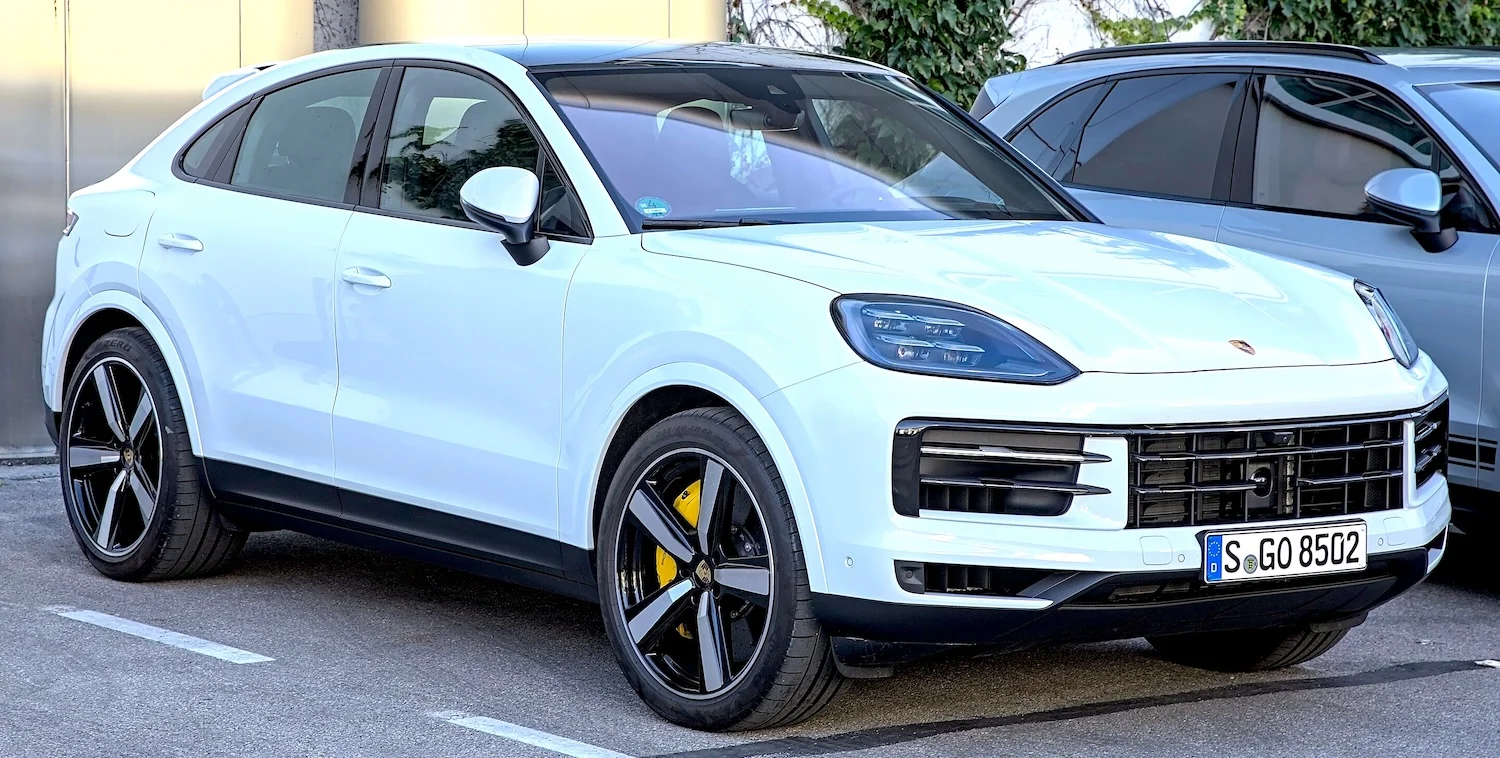 Porsche Cayenne Coupé
Porsche Cayenne Coupé
Majority Stakeholders: Volkswagen (75%), Porsche Holding (12.5%)
Production Output: 310,718 units (2024)
Annual Revenue: $46.6 billion
Porsche initially provided automotive development work and consulting, but it later gained popularity for its creation of the Volkswagen Beetle and the Porsche 356, the company’s first production sports car.
Porsche has come a long way since then. In recent years, it has embraced electric mobility by introducing the Porsche Taycan, its first all-electric sports car. Taycan combines Porsche’s performance heritage with advanced electric propulsion technology, offering superfast acceleration, long-range, and precise handling.
In 2023, Porsche sold a total of 320,221 units, up 3% from the previous year. The majority of these sales, amounting to 86,059 deliveries, came from North America. In Europe, excluding Germany, the company delivered 70,229 cars, while in Germany, it delivered 32,430 units. [8]
The Cayenne emerged as the model with the highest number of deliveries. The Porsche 911 saw the largest surge in popularity among all model lines, with a remarkable 24% increase from 2022. About 50,146 units were sold worldwide.
Similarly, the Taycan also experienced substantial growth, with 40,629 customers receiving their new cars, marking a 17% increase from 2022. In terms of revenue, the company experienced steady growth from $11.6 billion in 2011 to almost $40 billion in 2023. [9]
In 2024, Porsche delivered 310,718 vehicles worldwide, a 3% decline from the previous year. Electrified models made up 27% of total sales. That same year, the company generated $46.6 billion in revenue and recorded an operating profit of $6.5 billion.
5. Opel
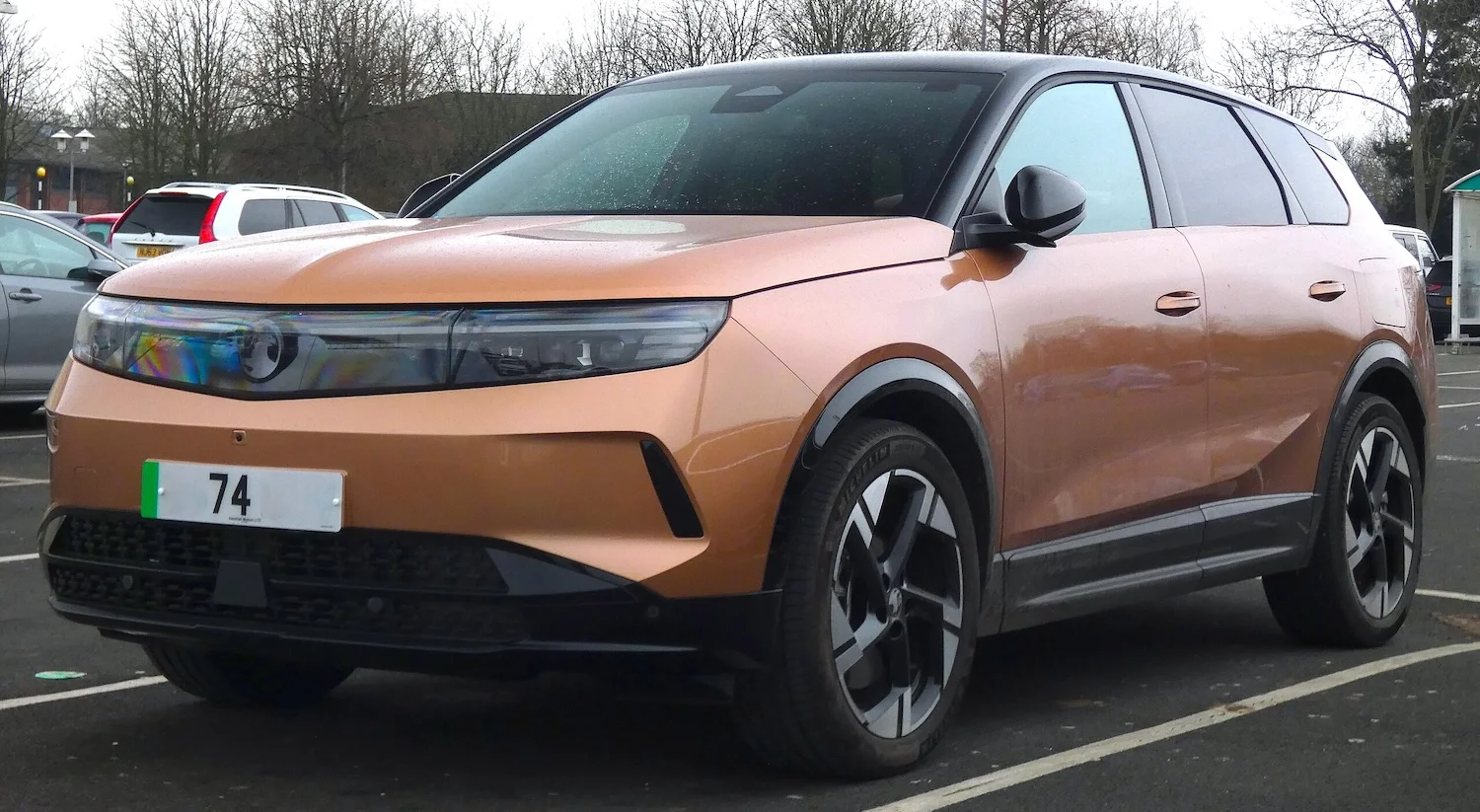 Opel Grandland GS
Opel Grandland GS
Parent: Stellantis
Annual Sales: 414,012 units (2024)
Annual Revenue: ~$14 billion
Opel is known for manufacturing a broad range of vehicles from compact cars to executive sedans and utility vehicles.
The company grew significantly in 2023, with a revenue increase of 15%, the highest growth rate in over two decades. Their worldwide sales reached nearly 670,000 units. [10]
During the same period, they achieved a market share of 5.3% in their home country, Germany, and recorded a market share of 6% in both the UK and Turkey.
Like other big automakers, Opel is heavily investing in electrification to meet evolving market trends and regulatory requirements. They have introduced hybrid and electric models, like the Opel Grandland X Hybrid and Opel Corsa-e, as part of their commitment to sustainable mobility.
These electric vehicles have been well-received by customers, with nearly 90,000 EVs sold in 2023, marking an impressive 22% increase compared to the previous year. In 2024, the company sold 414,012 cars in Europe, compared to 457,603 units sold in 2023.
In 2025, Opel launched the all-new Grandland, its flagship SUV, featuring a striking 3D Vizor front design, illuminated brand logo, Intelli-Lux Pixel HD headlights, and a full-width rear light bar. They are committed to offering a battery-electric variant for every model, aiming to become an all-electric brand in Europe by 2028.
4. Audi
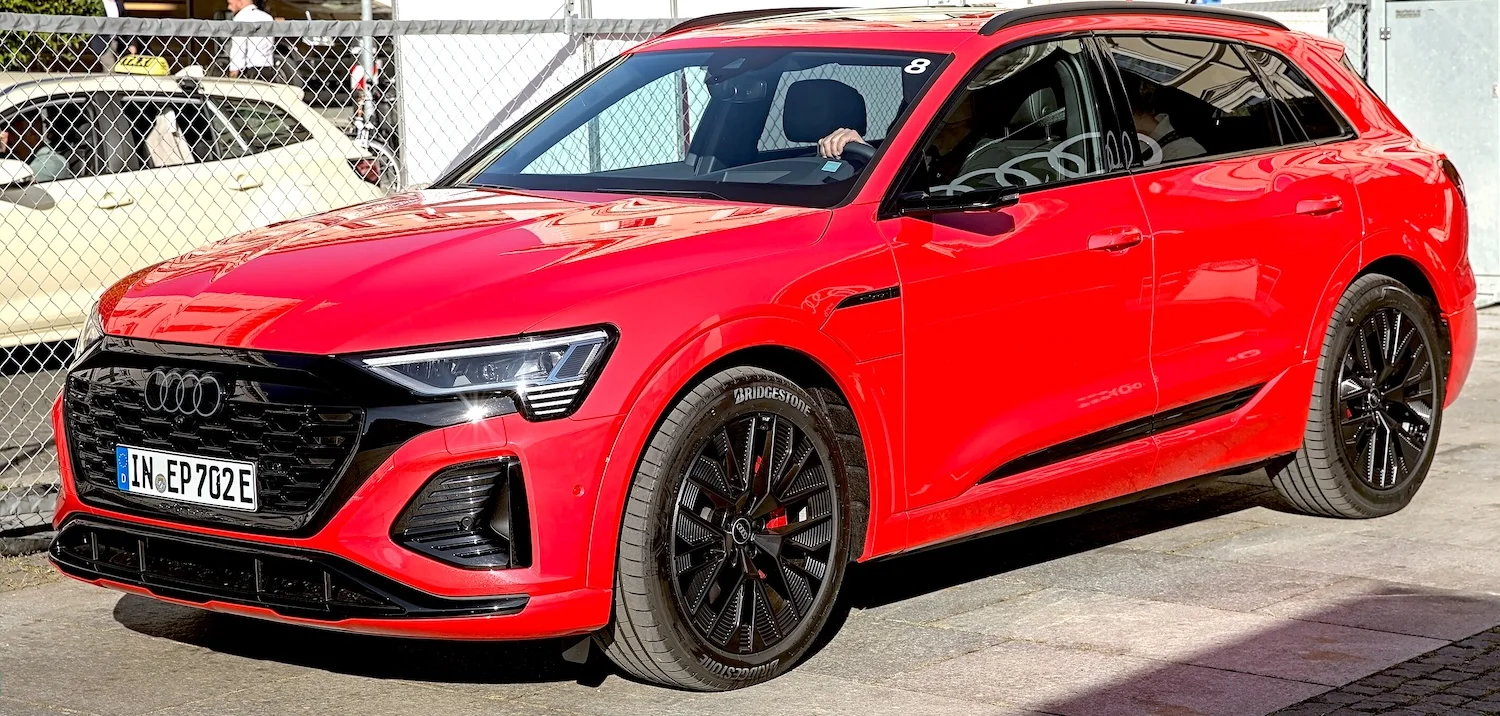 Q8 e-tron
Q8 e-tron
Parent: Volkswagen Group
Production Output: 1,692,548 units (2024)
Annual Revenue: $70.51 billion
Founded by August Horch, the brand name “Audi” is derived from the Latin translation of Horch’s surname, which means “listen.”
Audi quickly became popular for its innovative designs and advanced engineering, including the creation of the first left-hand drive production car in 1921.
Its logo, which contains four interlocking rings, represents the four founding companies of Auto Union: Audi, DKW, Horch, and Wanderer. In 1932, these companies merged to form Auto Union, which ultimately became Audi.
The company has shown remarkable performance since then. In 2023, they achieved annual sales of 1,918,912 units. Despite global challenges in the automotive industry, Audi maintained a strong revenue of $74.6 billion.
This impressive achievement translated into a substantial operating profit of $6.7 billion, with an operating margin of 9%. They had a net cash flow of $5 billion. [11]
Audi allocated 7.8% of its revenue to R&D, ensuring its competitiveness in the ever-evolving automotive landscape. Plus, they maintained a balanced approach to investment, with a capex ratio of 4.7%, allowing for strategic investment in technology and facilities while preserving financial stability. In 2024, the company experienced a slight decline in sales, delivering 1,692,548 cars worldwide.
To expand its electric lineup, Audi launched the fully electric A6 Avant e-tron in 2025. It comes with a 100 kWh battery, a WLTP range of about 658 km, 800 V fast charging, and a 210 kW motor. With launch control, output rises to 326 bhp, enabling 0–100 km/h in six seconds. The interior is packed with technology, featuring five screens and digital mirrors.
Looking ahead to 2026, Audi plans to discontinue the A1 hatchback and Q2 crossover, replacing them with a new entry-level EV positioned below the Q4 e-tron, blending the practicality of a hatchback with the utility of a crossover.
3. Mercedes-Benz
Founded in 1926Stepping forward to the circular economy approach.
Conserving resources is part of this: we’re aiming to increase the share of secondary raw materials in our new vehicle fleet up to 40% by 2030.
Tomorrow drives #MercedesBenz: https://t.co/7uByEQAG8n#Sustainability pic.twitter.com/5q07sl9u60
— Mercedes-Benz (@MercedesBenz) April 19, 2024
Parent: Mercedes-Benz Group
Production Output: 2,389,000 units (2024)
Annual Revenue: $159.8 billion
The brand name “Mercedes-Benz” combines the names of two early automotive pioneers: Gottlieb Daimler, the founder of Daimler-Motoren-Gesellschaft, and Karl Benz, the founder of Benz & Cie. In 1926, these companies merged to form Mercedes-Benz.
Today, Mercedes-Benz has a global presence with manufacturing facilities, R&D centers, and a giant network of dealerships worldwide. The company’s reputation for luxury and reliability has earned it a loyal customer base and established it as a leader in the premium car segment.
In 2023, despite facing supply-chain constraints, the company managed to sell 2,491,600 units. Their free cash flow also saw a significant increase, reaching $12 billion, up from $8.6 billion in 2022. [12]
Furthermore, sales of fully electric Mercedes-Benz vehicles surged to 222,600 units, representing a remarkable 73% increase from the previous year. Specifically, sales of the EQE Sedan surged by 120% worldwide, while battery electric vehicle (BEV) sales more than doubled (167%) in the USA. However, in 2024, the company experienced a slight decline in both sales and revenue, delivering 2,389,000 cars. [12]
2. BMW
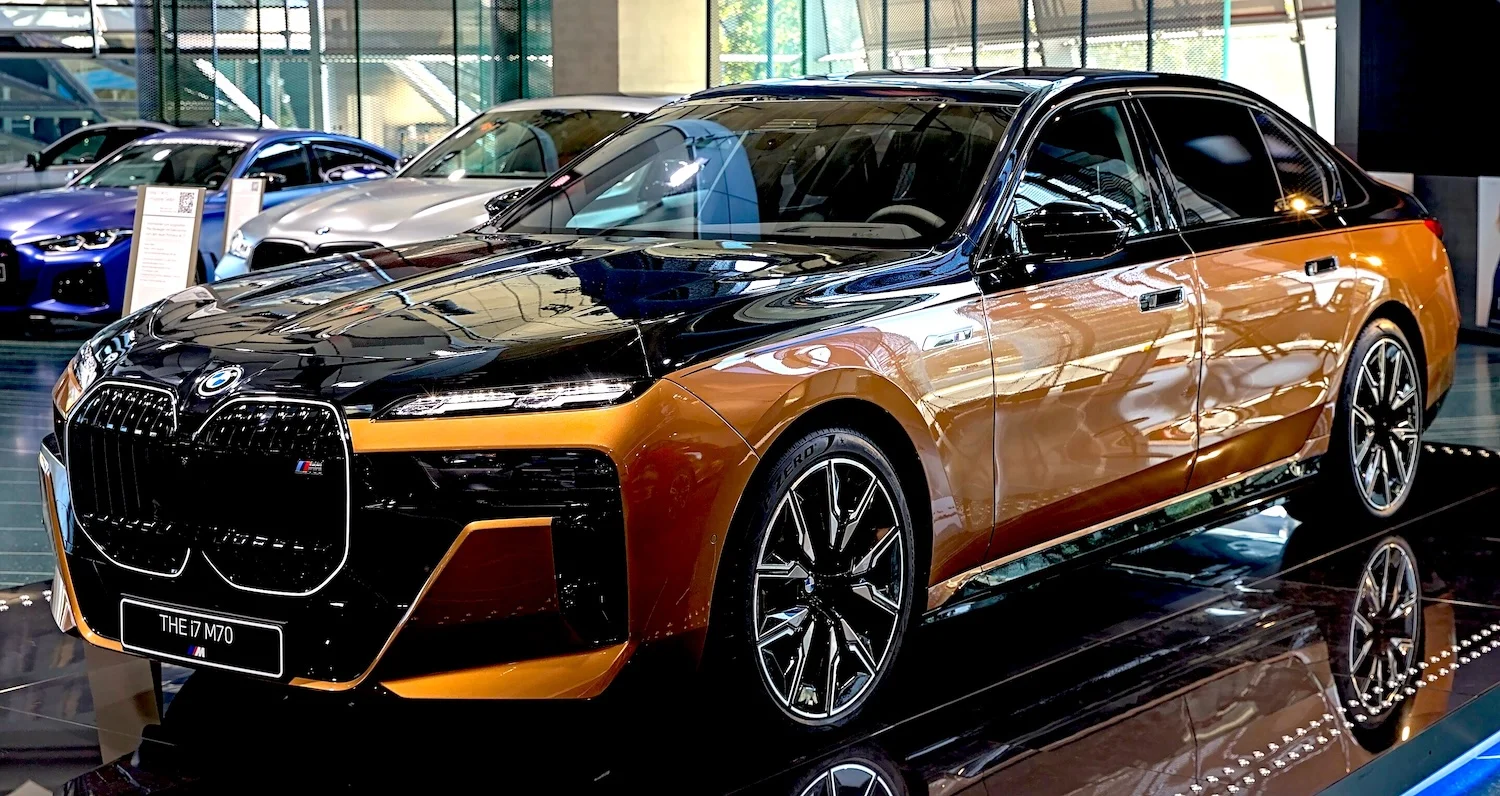 BMW i7 M70 xDrive
BMW i7 M70 xDrive
Majority Stakeholders: Public (50.7%), Stefan Quandt (25.8%), Susanne Klatten (20.9%)
Production Output: 2,450,804 units (2024)
Annual Revenue: $149.8 billion
Known for its dynamic performance, iconic design, and innovative technology, BMW has grown into one of the world’s leading premium automotive brands. It sells cars under the BMW, Rolls-Royce, and MINI brands.
In 2023, BMW ranked 46th on the Forbes Global 2000 list, with annual revenue of $168.7 billion. In both 2024 and 2025, it was the world’s sixth-largest automobile company by revenue. [13]
With annual sales of over 2.4 million units worldwide, BMW is currently the third best-selling European automotive company. [14]
BMW’s fully electric vehicles have been embraced by customers worldwide. In 2024, they delivered 593,215 PHEV & BEV units, marking a 4.8% increase from the previous year. [15]
The company is pushing sustainable manufacturing by incorporating natural fiber composites (like flax) into car exteriors and interiors. These materials, tested in Formula E and other racing platforms, reduce CO₂ emissions by up to 40 % compared to carbon fiber.
Furthermore, BMW has revealed its ambitious plans for EVs, aiming for them to constitute half of its total sales by 2030. If successful, this initiative will substantially boost BMW’s electric passenger car market share in Europe, which currently stands at 1%.
1. Volkswagen

Parent: Volkswagen Group
Production Output: ~9.03 million units (2024)
Annual Revenue: $353.07 billion
Volkswagen is among the two largest automobile companies in the world by revenue (alongside Toyota). Its name translates to “people’s car” in German, reflecting its core mission to create affordable and accessible vehicles for the masses. And indeed, the company has been remarkably successful in achieving this goal.
In 2023, Volkswagen sold nearly 9.24 million vehicles across the world, up 11.8% from 8.26 million in the previous year. It generated $343.9 billion in annual revenue and achieved operating results of $24.12 billion. [16]
The company has already experienced a remarkable increase in its electric vehicle (EV) sales worldwide, with an almost 80% year-over-year growth rate in 2021. In 2023, Volkswagen delivered 394,000 fully electric vehicles worldwide, representing a growth of 21.1% compared to the previous year. [17]
In 2024, the Group delivered about 9.03 million vehicles worldwide, a slight decrease from the previous year. The decline was mainly driven by a 10% drop in sales in the crucial Chinese market, where competition intensified. While sales increased in North and South America, they held steady in Europe and fell in the Asia-Pacific region.
That same year, SUVs made up 47% of Volkswagen’s total deliveries. By 2030, the company expects battery electric vehicles to account for around 70% of its sales in Europe.[18]
Volkswagen’s “New Auto” strategy includes consolidating EV architectures via the Scalable Systems Platform (SSP). Launching from 2026, SSP will unify hardware and software across brands, replacing legacy MEB, PPE, and ICE platforms. It’s designed to support over 40 million vehicles over time.
Other Small Car Companies in Germany
9. Alpina
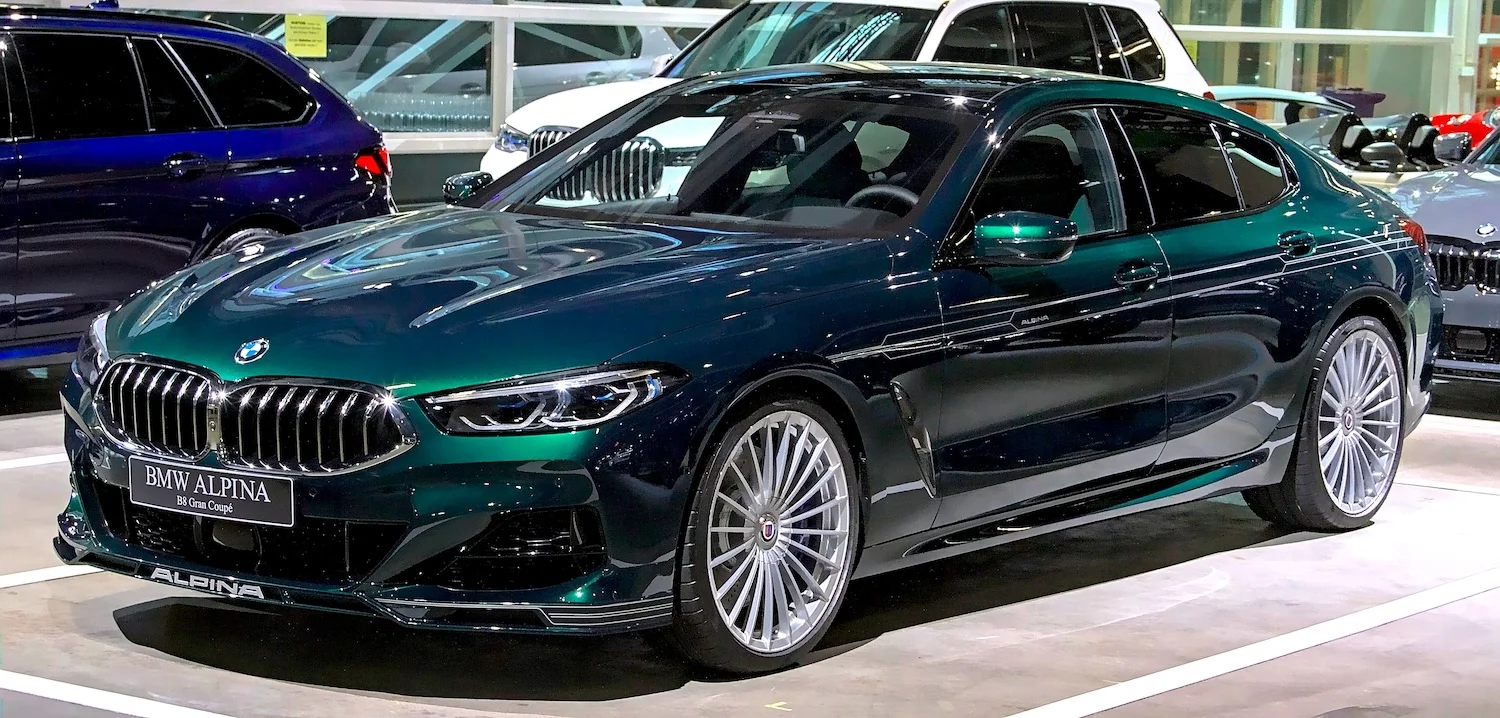 Alpina B8 Gran Coupé
Alpina B8 Gran Coupé
Parent: BMW
Alpina works closely with BMW, with whom it shares a long-standing relationship. Unlike traditional tuning companies, it works in collaboration with BMW, receiving support from the manufacturer to develop its high-performance models.
The BMW Alpina B8 GT, for instance, is an ultra-exclusive farewell model, limited to only 99 units. It is powered by a 4.4-liter twin-turbo V8 producing 625–634 hp and an impressive 627 lb-ft (850 Nm) of torque.
BMW has secured the trademark rights to the Alpina brand, signaling a new chapter in its long-standing relationship. The current collaboration, under which Alpina continues to develop, manufacture, and deliver Alpina-tuned vehicles, runs through the end of 2025.
As of 2025, the company generates around $151 million in annual revenue. [19]
10. Brabus
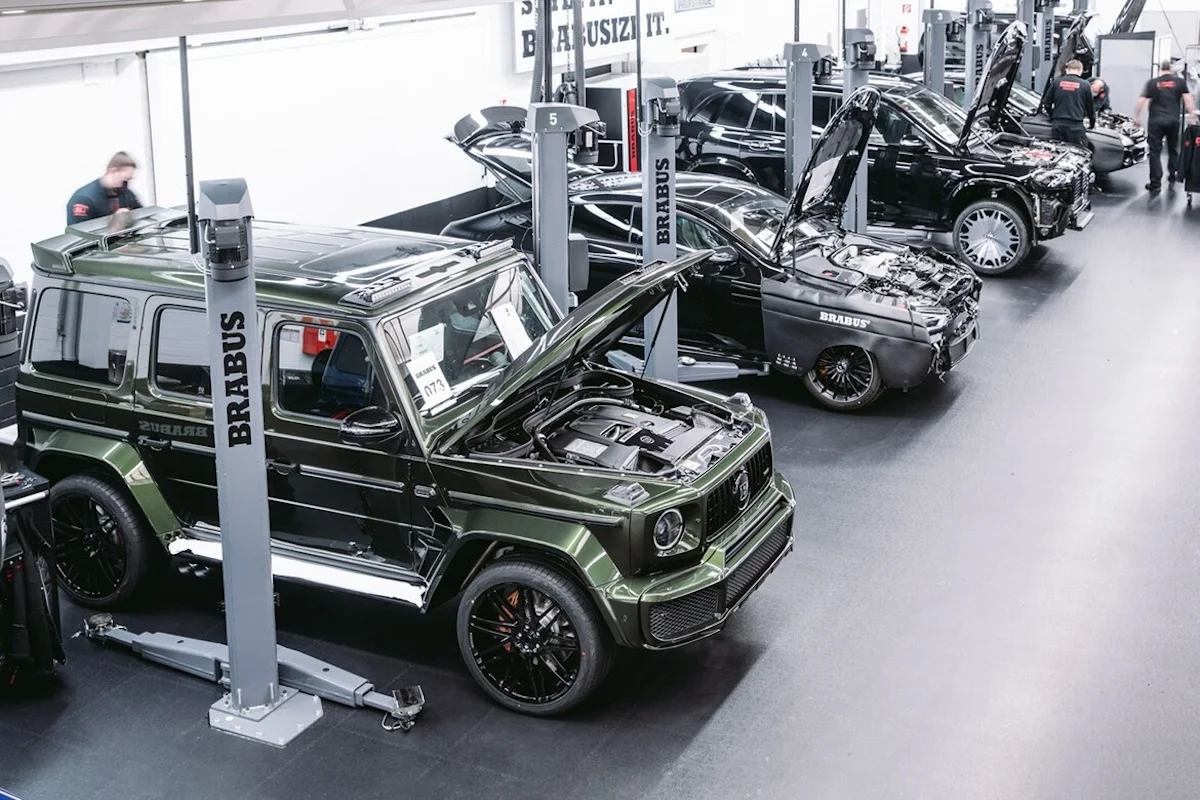
Annual Revenue: $56 million
Brabus is a high-performance automotive tuning company that modifies vehicles manufactured by Mercedes-Benz, Smart, and Maybach.
Besides aftermarket modifications, it produces exclusive models based on Mercedes-Benz’s lineup, such as the Brabus G-Class, Brabus S-Class, and Brabus Rocket.
For example, the Brabus 1000 “All Gray,” based on the Mercedes S-Class, is a hybrid powerhouse that delivers 1,000 hp and 1,820 Nm of torque (electronically limited to 1,620 Nm). It accelerates from 0 to 100 km/h in just 3.1 seconds and reaches a top speed of 290 km/h.
In 2024, Brabus made $51 million in annual revenue with a workforce of 260 employees. [20] In a prestigious readership poll by “auto motor und sport,” Brabus was named Best Tuning Brand 2025, the 19th time it has received this honor.
11. Mansory
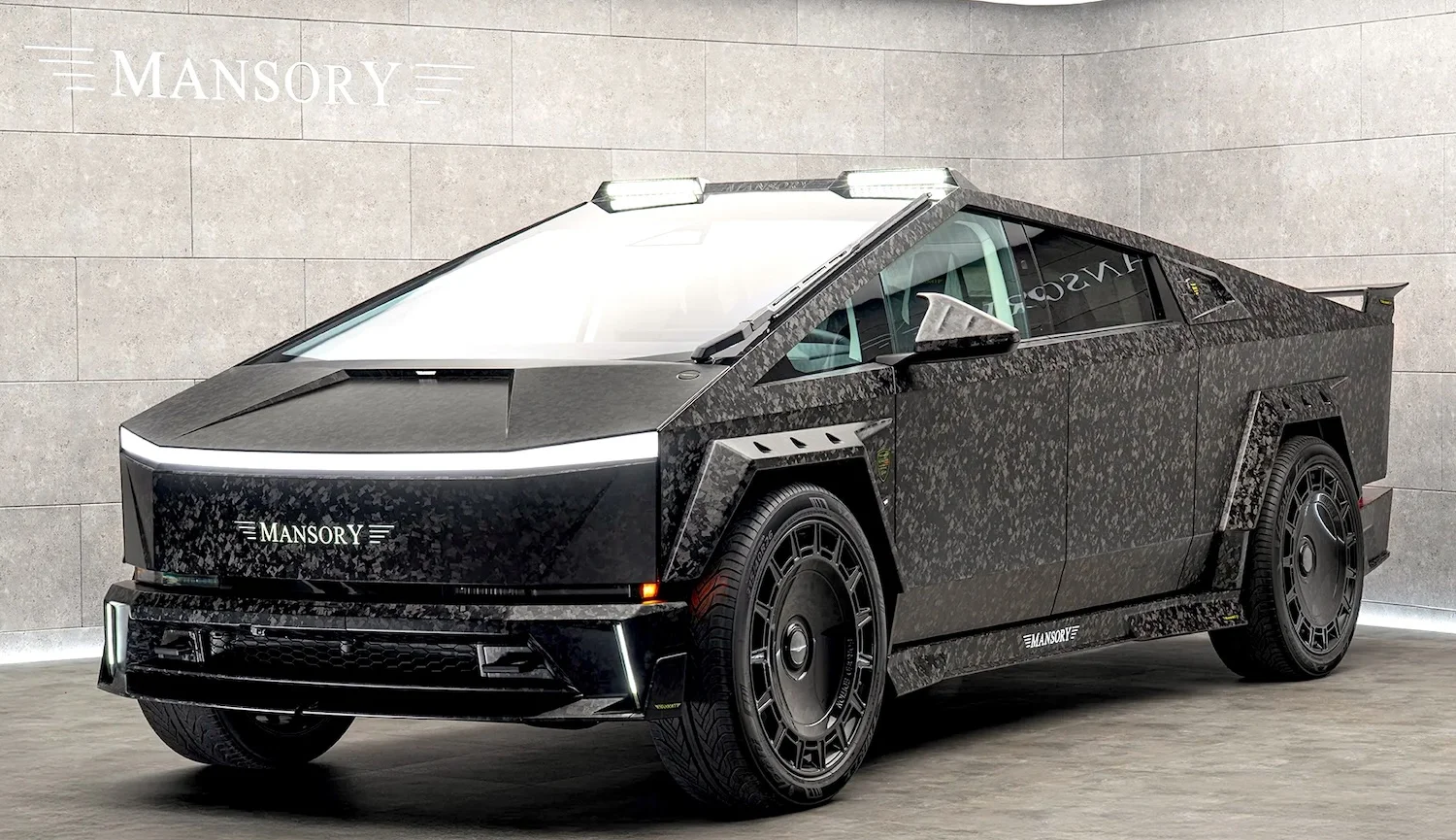 Tesla Cyberbeast – Elongation EVO
Tesla Cyberbeast – Elongation EVO
Known for aggressive exterior styling and unique paint finishes
Mansory has gained international recognition for its extravagant modifications of high-end cars. It customizes vehicles from various manufacturers, including Rolls-Royce, Mercedes-Benz, BMW, Ferrari, Lamborghini, Bugatti, Tesla, and Aston Martin.
Custom upholstery, carbon fiber body kits, exotic woods, exhaust systems, aerodynamic components, and suspension modifications are among the numerous options available to Mansory clients.
In 2025, Mansory unveiled two full-body conversion editions of the updated Mercedes-AMG G 63, each limited to just 8 units. Both versions feature forged-carbon body kits with redesigned bonnets and integrated air intakes, unique lighting, roof-mounted lamps, and custom arches with Mansory logos. Performance is boosted to 820 hp and 1,150 Nm, allowing a 0 – 100 km/h sprint in just 4.0 seconds.
They also unveiled the first full tuning conversion of the Rolls-Royce Cullinan. The upgrade includes an extensive carbon fiber kit, redesigned air intakes, an illuminated grille with DRLs, and optional quad or center-exit exhausts. The powertrain is boosted to 720 hp and 1,050 Nm, cutting the 0 – 100 km/h time to 4.8 seconds.
The company currently employs 200+ people globally and has a vast distribution network in several countries, including the USA, UK, China, and Germany.
12. Wiesmann
Founded in 1988Known for customized convertibles and coupes
Wiesmann cars are characterized by their unique retro-inspired design language, featuring long hoods and muscular fenders reminiscent of classic sports cars from the 1960s.
Despite their vintage look, these cars incorporate modern engineering and aerodynamic enhancements for improved performance and handling. Each car is custom-built to order, allowing buyers to personalize every aspect of their vehicle.
In 2022, the company announced its entry into the electric sports car market with “Project Thunderball,” a roadster EV capable of accelerating to 60 mph in 2.6 seconds. Its 83 kWh usable battery (92 kWh total capacity) offers a WLTP range of over 500 km, with support for 22 kW AC charging and up to 300 kW DC fast charging.
Despite its $320,000 price tag, the entire first year’s production was already sold out. Though exact numbers aren’t disclosed, reports suggest Wiesmann may limit the run to around 1,000 units, making it an exclusive collector’s piece. [21]
Read More
Sources Cited and Additional References- Industry Overview, The Automotive Industry in Germany, Germany Trade & Invest
- Research and Development, Automotive industry at the forefront of investments, VDA
- Vehicle Manufacturing, Revenue in the automobile industry in Germany from 2013 to 2023, Statista
- Vehicles & Road Traffic, Number of employees in the automobile industry in Germany, Statista
- Passenger Cars, Mercedes-AMG (Passenger Cars) – Worldwide, Statista
- Company News, Mercedes-Benz finishes 2022 with strong Top-End and Battery Electric Vehicle deliveries, Mercedes-Benz Group
- Company News, Sales rise to 2,493,000 vehicles in 2023, Mercedes-Benz Group
- Lena Rachor, Porsche posts stable sales in 2023: strong growth for the 911 and Taycan, Prosche Newsroom
- Vehicles & Road Traffic, Porsche’s revenue from FY 2011 to FY 2024, Statista
- Corporate News, Opel Increases Global Sales by a Strong 15% in 2023, Stellantis
- Key figures, Audi Group in fiscal year 2023, Audi
- Key figures, Full Year Results and Annual Report, Mercedes-Benz Group
- BMW Group, Revenue for BMW (BMW.DE), CompaniesMarketCap
- Vehicles & Road Traffic, Global revenue of BMW Group from FY 2007 to FY 2024, Statista
- Press Release, A successful 2023: BMW Group posts record sales, meets ambitious e-mobility growth targets, BMW Group
- Company Highlights, Annual Report & Full Year Results, Volkswagen Group
- Nina Krake-Thiemann, 4.8 million vehicles globally: Volkswagen increases deliveries, Volkswagen Newsroom
- Vehicles & Road Traffic, Volkswagen Group’s worldwide vehicle deliveries from 2012 to 2024, Statista
- Mobility, Alpina (Passenger Cars) – Worldwide, Statista
- Company Overview, Brabus Germany, Zoominfo
- Mike Duff, Wiesmann Project Thunderball EV Prototype Fuses Past and Future, Car and Driver


